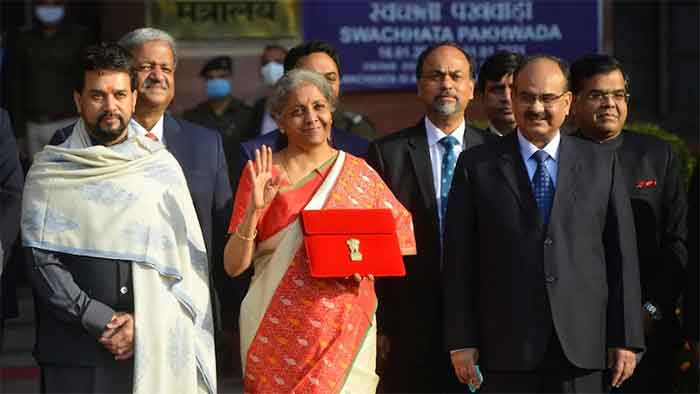
The Union Budget this year presented a huge opportunity for the government to break a new ground in terms of equality based path out of economic crisis. After all it is well known that inequalities have grown greatly during recent times with a further accelerating trend in 2020, in particular there have been huge gains for several billionaires and also overall for all billionaires combined, and to top it there have also been windfall gains for some in the special conditions of 2020.
These were therefore ideal conditions for raising much more taxes from the richest individuals and companies along lines that have been increasingly discussed in recent years of growing inequalities but not implemented yet. Such fiscal policies have been increasingly discussed in several countries and are also being implemented there to a greater or lesser extent.
In this context several experts and reports have also advocated much stronger use of tax policies for reducing inequalities and raising more resources for the very large number of people who are facing increasing difficulties in meeting their minimum basic needs and protecting their livelihoods. In fact even several government revenue officers had got together to prepare a report, commonly referred to as FORCE document, which advocated a path of raising badly needed resources which was consistent with avoiding further burden on common people and which was also consistent with the objective of reducing inequalities.
Unfortunately however the government has given very less attention to reducing inequalities and to the various options open to it for taxing the super-rich and windfall gain makers. This has left several hopefuls gasping and saying—if not now, then when, implying that if big inequality reducing measures were not announced in this year’s budget, then it is unlikely that these will be announced ever under the present regime of crony capitalism.
The trend of the budget speech being more rich in propagating the numerous real and imagined achievements of the country, and low in actual solid information that people expect in a budget, has been increasing and this is also reflected in the budget speech this time. After all, what is a citizen concerned about the country’s economy and people’s welfare looking for in a budget speech. She will like to know what was the actual spending in the last year, or the revised estimate, compared to the original estimate, in the context of key social welfare sectors and schemes, and what is the budget estimate for these welfare schemes and sectors in the year ahead. She will also like to know how the very urgent needs of the millions who have been pushed towards poverty in the very exceptionally disruptive conditions of recent times will be met.
In this context the budget speech is not very helpful as the most discussed measures before the budget ( like a big increase in MGNREGA funds, or the introduction of an urban employment guarantee scheme along similar conceptual lines but with different details to suit urban areas, or an increase in funds directly reaching farmers and weaker sections, or an extension of the free food grain scheme) were generally ignored or not even mentioned in the budget speech.
There was much praise in the speech for the hike in some areas. While the Finance Minister has every right to highlight the hike in allocation for any welfare sector as an achievement of her budget, ultimately the concerned citizen also wants to know not only the areas of hikes but also the areas of stagnancy and cuts, and this information, which should be provided in the interests of transparency and balance ,is generally not available in the budget speech.
Similarly there is much less discussion on the macro indicators of economy. As there are fears that contraction may be higher than estimates and this will affect other aspects of budget and its various estimates, more discussion and transparency on macro indicators would have been useful.
Economists who had been advocating for a very significant increase in the purchasing power in the hands of common people and poorer people have been generally disappointed in the context of this budget contributing to this or paving the way for this. On the other hand, there are big concerns also about the disinvestment policy, selling the family silver, the big increase in foreign direct investment in insurance and the future of the Life Insurance Corporation of India.
There are serious issues regarding how the slogan of atma nirbharta or self-reliance is being interpreted and advanced, negating its original meaning and aim, in the context of how the term is increasingly used in government documents including the budget speech.
On the whole the big opportunities that could have been utilized at this juncture have been by and large not used by the government and while there are a few saving graces, on the whole the expectations of those wanting an equality based path out of the economic crisis have not been fulfilled.
Bharat Dogra is a journalist and author. His recent books include When the Two Streams Met ( Freedom Movement of India ) and Protecting Earth For Children.
IF YOU LIKED THE ARTICLE SUPPORT PEOPLE’S JOURNALISM












































